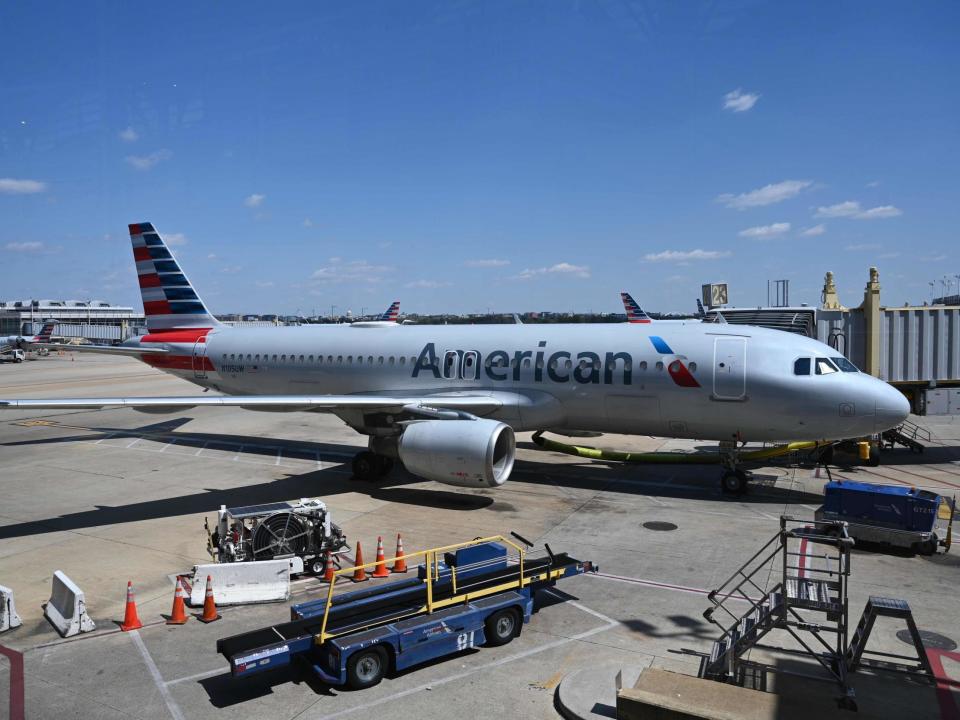Coronavirus: Fewer than 1 in 10 seats filled on US flights amid global pandemic

Fewer than one in 10 seats on domestic flights in the US are being filled due to a precipitous fall in demand amid the coronavirus pandemic, an expert has estimated.
Despite a 96 per cent drop in US passenger numbers, more than a third of American flights appear to still be operating.
While more than 8 in 10 flights have been cancelled globally, Dan Rutherford, aviation director at the International Council on Clean Transportation, estimated around 35 per cent of US flights were running compared to this time last year.
It has led to fewer than 10 per cent of airline seats being filled in the US, Mr Rutherford said.
“The evidence suggests that the number of people flying is dropping faster than the flights so there are a lot of empty planes,” he told The Guardian. “The airlines are left to figure this out for themselves and they are playing catch-up.”
Though low passenger numbers benefit social distancing measures, Mr Rutherford said the huge discrepancy between passenger numbers and the number of flights was a “huge environmental waste”.
Airlines, he said, were petitioning the US Department of Transportation to reduce essential flights, but there was “still much fat to be trimmed”.
Updated for this week’s data. Implied load factor on US flights has stabilized but is still below 10%. Plenty of room to cut flights. @OAG_Aviation @TSA @TransportStats pic.twitter.com/NdWNKDRlR0
— Dan Rutherford (@rutherdan)
American Airlines chief Doug Parker has said those flying “are doing so for important reasons”.
While aviation contributes only two per cent of global carbons – though it is potentially far more damaging than that – only a small fraction of the world’s population regularly flies, meaning it accounts for a disproportionate amount of overall emissions.
As the aviation industry looks ahead, beyond the current near-total grounding of passenger aircraft, airlines are expecting to face higher costs that will inevitably be passed on to the passenger.
Alexandre de Juniac, director general and chief executive of the International Air Transport Association (IATA), has warned that when aviation restarts at scale, governments and health authorities will impose strict new rules intended to reduce the spread of Covid-19.
It will mean lower passenger numbers on planes, to allow to social distancing, but with an associated increase in ticket prices.
“That is a complete shift of the business model of airlines operating short-haul aircraft,” Mr De Juniac said.
If airlines are required to cut passenger numbers by one-third, all else being equal, fares would rise by 50 per cent. But the exact increase would depend on supply and demand – with carriers likely to reduce their capacity in the expectation of slow growth.
Read more
Tracking the coronavirus outbreak around the world in maps and charts
When can we really expect coronavirus to end?
Everything you need to know on supermarket delivery slots
The dirty truth about washing your hands
Listen to the latest episode of The Independent Coronavirus Podcast

 Yahoo Finance
Yahoo Finance 